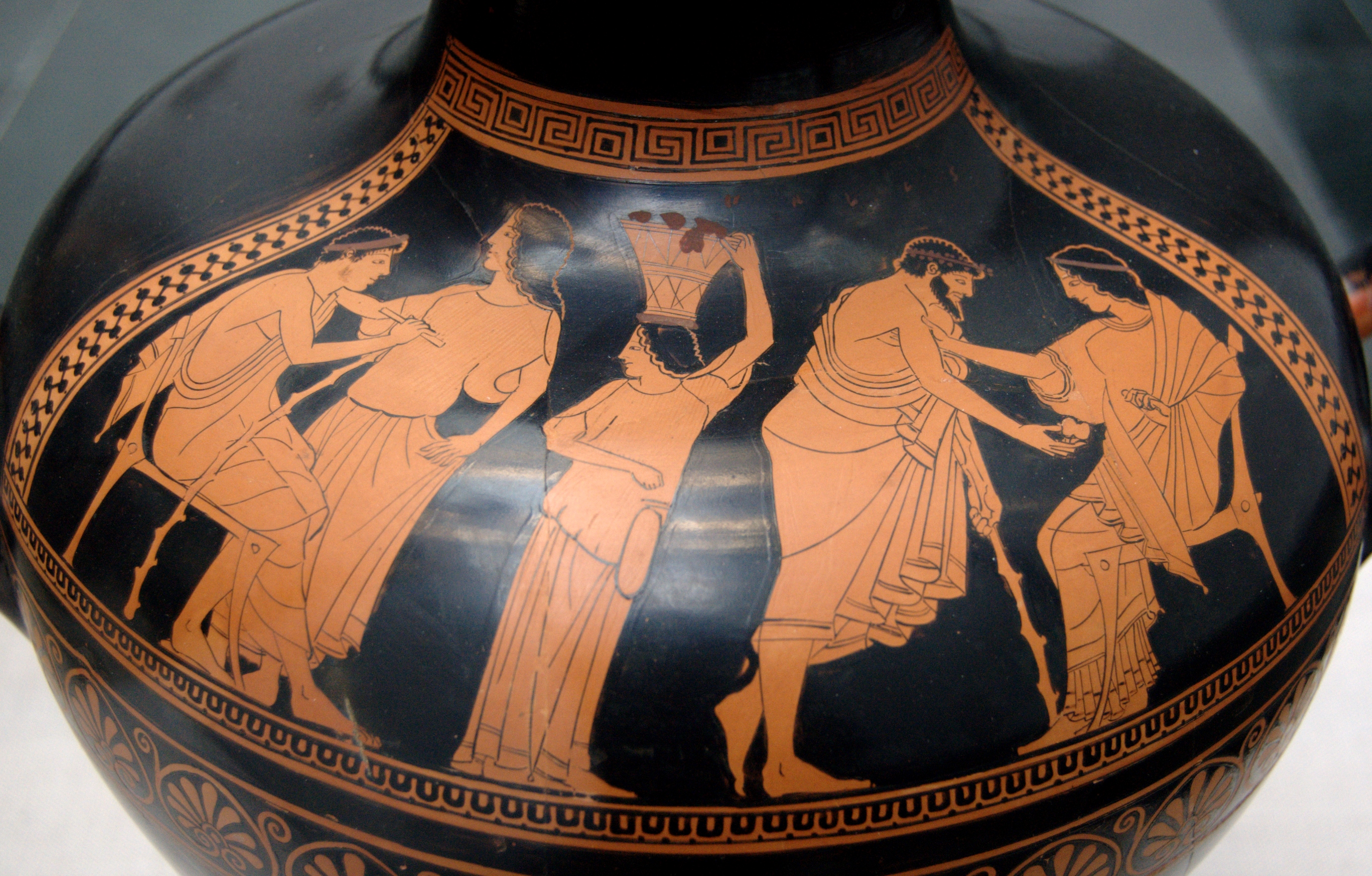|
Sophia (empress)
Aelia Sophia (Medieval Greek: Σοφία) (c. 530 – c./aft. 601) was the Byzantine empress as the wife of Emperor Justin II. She was also ruler in her capacity as regent during the incapacity of her spouse from 573 until 578, though she was never a monarch. She was interested in economic and financial matters during Justin's reign. Early life According to the ''Ecclesiastic History'' of John of Ephesus, Sophia was a niece of Theodora, the Empress consort of Justinian I. John of Ephesus did not specify the identities of her parents. According to the Secret History of Procopius, Theodora had only two siblings: her older sister Comito and younger sister Anastasia; either one could be the mother of Sophia. Procopius identifies Comito as a leading hetaera of her age. John Malalas records that Comito (b. ca 500) married general Sittas in 528.PLRE, vol. 3, ''Sittas'' Sittas may thus be the father of Sophia. Whether Anastasia ever married is unknown. During the reign of Justinian I (52 ... [...More Info...] [...Related Items...] OR: [Wikipedia] [Google] [Baidu] |
Augusta (honorific)
Augusta may refer to: Places Australia * Augusta, Western Australia Brasil * Rua Augusta (São Paulo) Canada * Augusta, Ontario * North Augusta, Ontario * Augusta Street (Hamilton, Ontario) France * Augusta Suessionum ("Augusta of the Suessii"), Soissons * Augusta Viromanduorum ("Augusta of the Viromandui"), Saint-Quentin Germany * Augusta Treverorum ("Augusta of the Treveri") or Trier * Augusta Vindelicorum ("Augusta of the Vindelici") or Augsburg Italy * Augusta, Sicily * Augusta Praetoria Salassorum ("Praetorian Augusta of the Salassi") or Aosta * Augusta Taurinorum ("Augusta of the Taurini") or Turin * Perugia or ''Augusta Perusia'' Spain * Emerita Augusta, Mérida, Spain * Caesar Augusta, Zaragoza, Spain United States * Augusta, Arkansas * Augusta Charter Township, Michigan * Augusta County, Virginia * Augusta, Georgia ** Augusta National Golf Club ("Augusta"), home of the Masters Tournament * Augusta, Illinois * Augusta, Indiana * Augusta, Indianapolis, Indiana * ... [...More Info...] [...Related Items...] OR: [Wikipedia] [Google] [Baidu] |
Hetaera
Hetaira (plural hetairai (), also hetaera (plural hetaerae ), ( grc, ἑταίρα, "companion", pl. , la, hetaera, pl. ) was a type of prostitute in ancient Greece, who served as an artist, entertainer and conversationalist in addition to providing sexual service. Unlike the rule for ancient Greek women, hetairas would be highly educated and were allowed in the symposium. Summary Traditionally, historians of ancient Greece have distinguished between ''hetairai'' and ''pornai'', another class of prostitute in ancient Greece. In contrast to pornai, who provided sex for numerous clients in brothels or on the street, hetairai were thought to have had only a few men as clients at any one time, to have had long-term relationships with them, and to have provided companionship and intellectual stimulation as well as sex. For instance, Charles Seltman wrote in 1953 that "hetaeras were certainly in a very different class, often highly educated women". More recently, however, historia ... [...More Info...] [...Related Items...] OR: [Wikipedia] [Google] [Baidu] |
Shroud
Shroud usually refers to an item, such as a cloth, that covers or protects some other object. The term is most often used in reference to ''burial sheets'', mound shroud, grave clothes, winding-cloths or winding-sheets, such as the famous Shroud of Turin, ''tachrichim'' (burial shrouds) that Jews are dressed in for burial, or the white cotton ''kaffan'' sheets Muslims are wrapped in for burial. A traditional Orthodox Jewish shroud consists of a tunic; a hood; pants that are extra-long and sewn shut at the bottom, so that separate foot coverings are not required; and a belt, which is tied in a knot shaped like the Hebrew letter ''shin'', mnemonic of one of God's names, Shaddai. Traditionally, mound shrouds are made of white cotton, wool or linen, though any material can be used so long as it is made of natural fibre. Intermixture of two or more such fibres is forbidden, a proscription that ultimately derives from the Torah, ''viz.'', Deut. 22:11. An especially pious Jewish ma ... [...More Info...] [...Related Items...] OR: [Wikipedia] [Google] [Baidu] |
Wisdom
Wisdom, sapience, or sagacity is the ability to contemplate and act using knowledge, experience, understanding, common sense and insight. Wisdom is associated with attributes such as unbiased judgment, compassion, experiential self-knowledge, self-transcendence and non-attachment, and virtues such as ethics and benevolence. Wisdom has been defined in many different ways, including several distinct approaches to assess the characteristics attributed to wisdom. Definitions The ''Oxford English Dictionary'' defines wisdom as "Capacity of judging rightly in matters relating to life and conduct; soundness of judgment in the choice of means and ends; sometimes, less strictly, sound sense, esp. in practical affairs: opp. to folly;" also "Knowledge (esp. of a high or abstruse kind); enlightenment, learning, erudition." Charles Haddon Spurgeon defined wisdom as "the right use of knowledge". Robert I. Sutton and Andrew Hargadon defined the "attitude of wisdom" as "acting with knowle ... [...More Info...] [...Related Items...] OR: [Wikipedia] [Google] [Baidu] |
Latin
Latin (, or , ) is a classical language belonging to the Italic branch of the Indo-European languages. Latin was originally a dialect spoken in the lower Tiber area (then known as Latium) around present-day Rome, but through the power of the Roman Republic it became the dominant language in the Italian region and subsequently throughout the Roman Empire. Even after the fall of Western Rome, Latin remained the common language of international communication, science, scholarship and academia in Europe until well into the 18th century, when other regional vernaculars (including its own descendants, the Romance languages) supplanted it in common academic and political usage, and it eventually became a dead language in the modern linguistic definition. Latin is a highly inflected language, with three distinct genders (masculine, feminine, and neuter), six or seven noun cases (nominative, accusative, genitive, dative, ablative, and vocative), five declensions, four verb conjuga ... [...More Info...] [...Related Items...] OR: [Wikipedia] [Google] [Baidu] |



